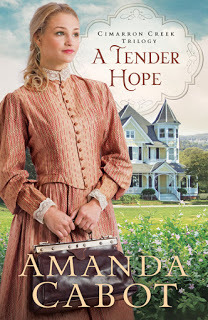R&R: Raves and Rants From Multi-Published Author Amanda Cabot
 Lessons from Little WomenShow of hands, please. How many of you have read Little Women? If you have, I suspect you recall how Amy, the youngest of the March sisters, complains about her fellow classmates who “label your father if he isn’t rich.” Older sister Jo laughs and says, “If you mean libel, I’d say so and not talk about labels, as if Papa was a pickle bottle.”
Lessons from Little WomenShow of hands, please. How many of you have read Little Women? If you have, I suspect you recall how Amy, the youngest of the March sisters, complains about her fellow classmates who “label your father if he isn’t rich.” Older sister Jo laughs and says, “If you mean libel, I’d say so and not talk about labels, as if Papa was a pickle bottle.”We can laugh at Amy and her attempts to have a sophisticated “vocabilary,” but the reality is, I’ve seen errors as egregious as Amy’s in a number of novels. Consider the following:
Fresh bread and a large sallet would complete the meal.
When I read that line, I was intrigued, since sallet isn’t part of my active vocabulary. I thought it might be an outdated way of spelling salad, so you can imagine my amusement when I discovered that a sallet is a 15th-century helmet. Amy March would have felt kinship with this particular author.

Breathless when they reached the top of the hill, they stared in awe at the magnificent visage.
Perhaps they did, if the hill was near Mount Rushmore and the protagonists were gazing at the presidents. Visage, of course, is a face, whereas vista, which is what I think the author meant, is a view.

Fortunately, she had been spared many of the humilities during her stay with him.
Since the author had been talking about the indignities that others in the heroine’s situation had endured, she probably meant humiliations rather than humilities.
She’d been raised in poverty, and that depravity colored the rest of her life.
Depravity is not necessarily part of poverty, whereas deprivation is.

What’s the problem with errors like these? They diminish authors’ credibility. When readers open our books, they trust us to give them stories that are as accurate as we can make them. That means realistic characters, believable settings, and the use of the right word. Quite simply, they expect professionalism. If they encounter Amy March-like vocabulary mistakes, they’re justified in believing that the author is an amateur. And that’s not a good thing.
While I won’t speculate on the reasons for the errors I cited above, sometimes it appears that mistakes are caused by blindly accepting what Spellchecker offers.
Daphne stuck another ribbon into her unruly curls in a vain attempt at creating a sophisticated coiffeur.
There’s a difference between coiffeur (hairdresser) and coiffure (hairstyle), just as there’s a difference between impetuous and impetus and between trundled and bundled in the sentences below.
He had created the impetuous for his takeover of the business.
The children were trundled up in their scarves, hats, and winter coats.
Accepting Spellchecker’s suggestions is an easy enough mistake to make, but that doesn’t excuse it.
I doubt anyone wants to have readers laugh at vocabulary errors, and I’m sure no one introduces them deliberately. The problem is that as authors, we’re so close to our work that we don’t necessarily see the mistakes. That’s why we need a Jo March in our lives to point out the errors. Who are those Jo Marchs? Editors. What the mistakes I cited have in common is that I found them in either manuscripts I was reviewing or indie-pubbed books that may not have had the benefit of a professional editor.
The lesson from Little Women is simple: editors are an essential part of the publishing process, and anyone who skips or shortcuts that step is risking having readers laugh for the wrong reasons.
~ Amanda

 A lifetime of reading and writing, not to mention a host of teachers who believed that good grammar was one of the essentials of life, have given Amanda Cabot such firm opinions about the printed word that I asked her to share some with us in her Raves and Rants posts.
A lifetime of reading and writing, not to mention a host of teachers who believed that good grammar was one of the essentials of life, have given Amanda Cabot such firm opinions about the printed word that I asked her to share some with us in her Raves and Rants posts. Although her working career was in Information Technology, Amanda achieved her dream of selling her first novel before her thirtieth birthday and is now the author of more than thirty novels as well as a number of books and articles for Information Technology professionals.
Her most recent book, now on pre-order (available March 5th), A Tender Hope, is the final book of the Cimarron Creek trilogy.
Find all of Amanda's books, newsletter info and social media links here.

Ready to try Amazon Prime:
Tweet
Published on January 13, 2019 23:30
No comments have been added yet.



